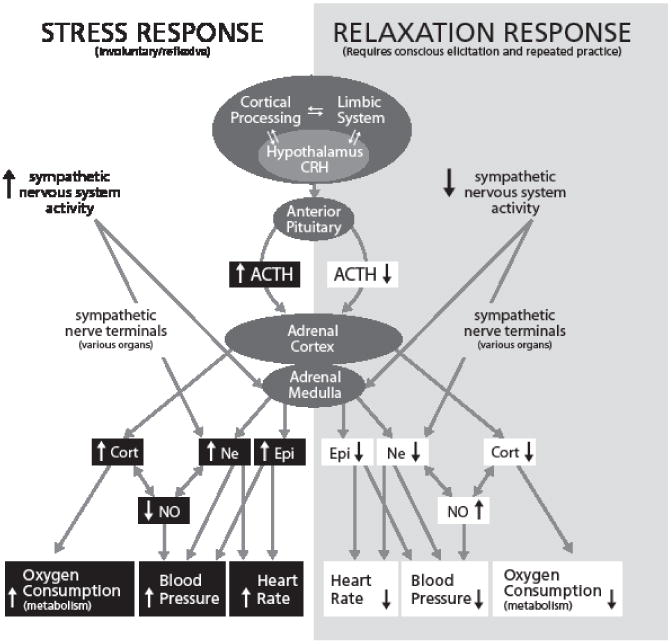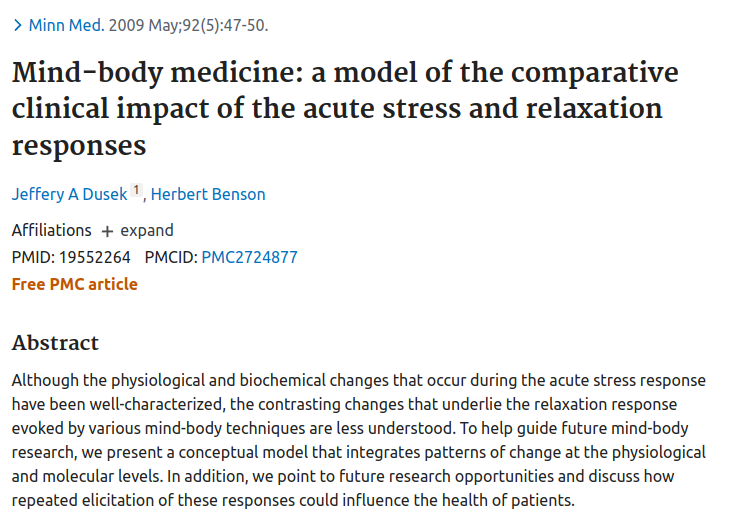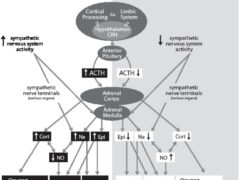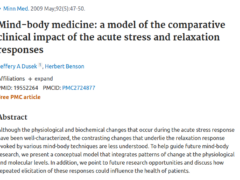Publication
Minn Med.
92(5): 47-50
Abstract
Although the physiological and biochemical changes that occur during the acute stress response have been well-characterized, the contrasting changes that underlie the relaxation response evoked by various mind-body techniques are less understood. To help guide future mind-body research, we present a conceptual model that integrates patterns of change at the physiological and molecular levels. In addition, we point to future research opportunities and discuss how repeated elicitation of these responses could influence the health of patients.
Web and Email Links
Related Listings
Journal
American Journal of Public Health
A 12-week randomized experiment investigated the effects of daily relaxation breaks on office workers with “normal” blood pressure. Blood pressures of 126 volunteers from the corporate offices of a manufacturing firm were measured biweekly. After four weeks of baseline monitoring, volunteers were divided randomly into three groups: Group A was taught a technique for producing the relaxation response; Group B was “taught” to sit quietly; and Group C was taught nothing. Groups A and B w […]
Journal
Behavioral Medicine
This article describes the validation of an Inventory of Positive Psychological Attitudes that has potential relevance to health outcomes and its preliminary testing with chronic pain patients. The inventory taps two attitudinal domains: (1) life purpose and satisfaction and (2) self-confidence during potentially stressful situations. It also provides a total score. The inventory scales, developed using factor analysis, were found to have a strong degree of internal reliability and co […]
Journal
Journal of Cardiovascular Nursing
Hypertension is one of the leading health problems in the United States. It is commonly accepted that as many as 60 million Americans have hypertension, with the majority (>70%) having mild elevations (diastolic pressure range, 90-104 mm Hg). The treatment of hypertension accounts for more office visits to health care providers and more treatment than any other medical diagnosis. A 1980 National Institutes of Health survey showed that about 2% of visits to health care providers wer […]




